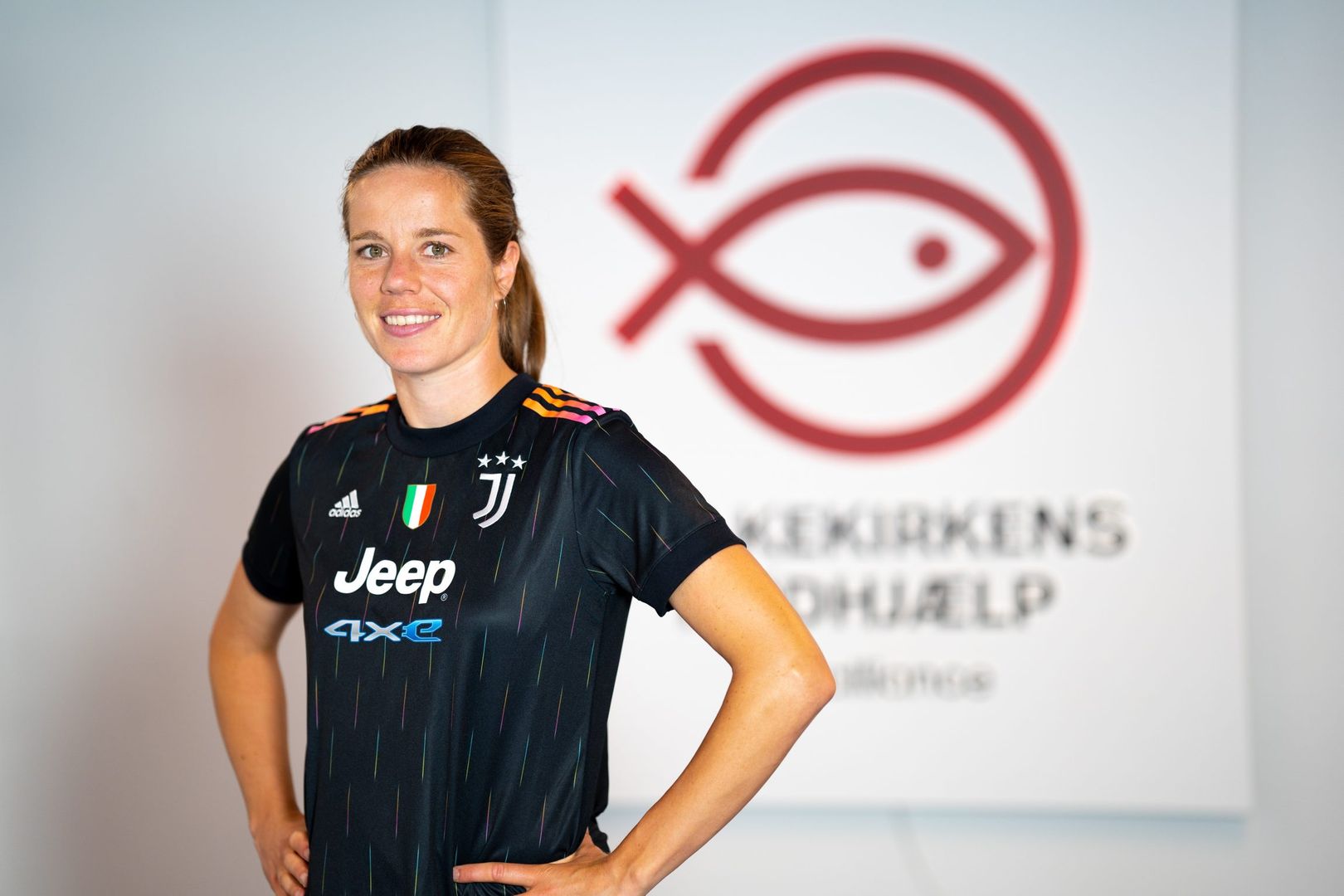Football star and climate advocate, Sofie Junge Pedersen, is spearheading a global climate campaign with broad support from teammates from the Danish national football team at the World Cup in Australia and New Zealand.
In short, the campaign encourages all players coming to play at the World Cup to offset the emissions generated by their air travel by donating to DanChurchAid’s work to mitigate climate change effects in Uganda or to World Wide Fund for Nature (WWF) in Australia and New Zealand.
“Football players travel worldwide for matches and tournaments, inevitably contributing to greenhouse gas emissions in the absence of sustainable aviation solutions. While offsetting our air travel is one step towards taking responsibility, we must also strive to reduce our overall CO2 emissions and lead by inspiring the 3.5 billion football fans around the world to prioritize the climate,” says Sofie Junge Pedersen.
The campaign
The campaign is the biggest player-led climate initiative in the history of football and Sofie Junge Pedersen, midfielder on the Danish national team and Inter Milan, and climate advocate for DanChurchAid, has launched the initiative with the support of Football for Future (www.footballforfuture.org) and Common Goal (www.common-goal.org).

Other players who have had a hand in making the campaign a reality are Canada’s Jessie Flemming (Chelsea) and Italy’s Elene Linari (Roma).
Football and pollution
It is estimated that the global football industry produces more than 30 million tonnes of carbon dioxide every year, which is about the same size as the total emissions of Denmark. (2021)
Source: www.carbonliteracy.com
Through a climate contract with DanChurchAid, the football players support the people and communities in developing countries that are most affected by climate change.
This is done through a range of activities that benefit the climate – in Uganda these activities comprise planting trees in fields, gardens, and windbreaks, the use of new climate-resilient crops, investments in climate innovation, climate adaptation in general in agricultural communities in Uganda.
For Sofie Junge, it is important to directly support those most affected byt climate change because there is an imbalance in who emits and who feels the affects. “Developing countries pay the biggest price for climate change in which they have the smallest stake,” she says.

“The hardest hit are developing countries, which have the smallest share of emissions. They experience droughts and floods, their crops die, and millions of people go without food. That is unfair.”
Sofie Junge Pedersen, midfielder for the Danish national team and Inter Milan and climate advocate for DanChurch
Aid.
While understanding that donating to climate resilience, carbon offsetting, and adaptation initiatives do not solve the climate crisis, the campaign recognises that these are short-term tools to compensate for players’ flights to and from the World Cup.
DanChurchAid welcomes the initiative
“We are full of admiration for our climate advocate Sofie Junge Pedersen and for all the footballers who are putting the climate and the world’s poorest on the agenda at the World Cup. Carbon offsetting and tree planting are only part of the green transition of the world. But with this initiative, the Danish footballers show climate responsibility and act as role models for future sportswomen – and men of the world,” says Birgitte Qvist-Sørensen, Secretary General of DanChurchAid.
Unfortunately Sofie Junge Pedersen was replaced by another player just days before the World Cup kick off because of an injury.

